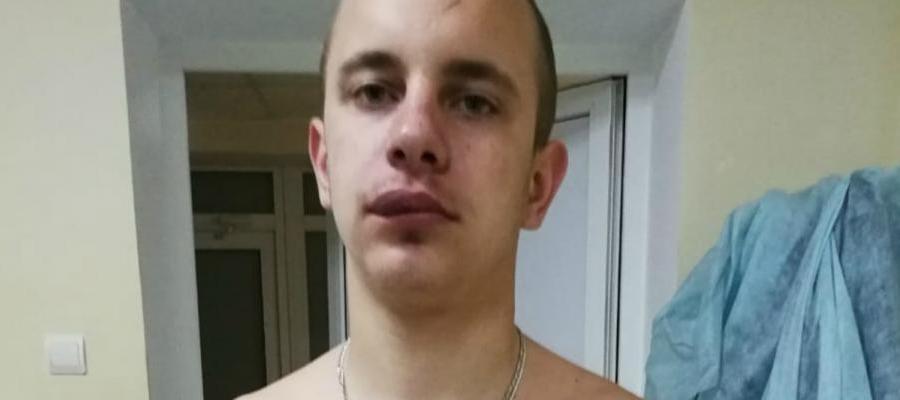
Citizen from Gulkevichi town of the Krasnodar Territory Nikita Khatskevich complained about local police department criminal investigations officers, claiming that they beat him up, forcing him to write a confession of theft of a cable. The Investigative Committee already started the check based on these circumstances, human rights defenders with the Committee Against Torture also commenced the public investigation.
On 25 March 2019, Nikita Khatskevich, a citizen from Gulkevichi town of the Krasnodar Territory, applied to the Committee Against Torture for legal assistance. He told human rights defenders that on 18 March four police officers seized him in his house and delivered him to the police department. There, according to Nikita, the criminal investigations officers illegally applied physical force against him in order to force him to obtain his confession of theft of a copper cable.
“After I replied that I have nothing to tell, one of the investigative officers hit me with his fist against the chest. After this blow I flew to the door and fell together with the chair. After that all four of them started to beat me up. They hit against the ribs, at the body, some blows were at the left ear. The battery suspended from time to time, and one of the officers suggested that I talk nice with them and tell everything as they “had information”. When I answered that I had told everything and I don’t know anything, they started to beat me up again. All this lasted for about thirty minutes”, – Khatskevich remembers.
According to Nikita, as a result, the police officers printed out his explanations that he did not know anything about the theft of a cable and he was not involved in that.
“After I put my signature in this explanation, the police officer told me that I provided false evidence and now I would be in big trouble because of that”, – Nikita says.
According to Khatskevitch, after that he was handed over to Patrol-Guard Service officers, who brought him to the local hospital. There Nikita told the doctor he did not have any complaints to make, fearing the battery might repeat.
After Khatskevich was taken back to the police department, a protocol on administrative violation was drawn up, accusing him of using obscenities in a public place as well as of defiance of a lawful demand of the police officer.
On the next day, 19 March, defense lawyer Olesya Panyuzheva came to police department, whom Nikita Khatskevich told what happened to him the day before; he also told her he was feeling unwell. The defense lawyer demanded that the police officer called an ambulance. The arrived medics applied a splint on Nikita’s neck and took him to hospital, where he underwent treatment for a week.
According to the act of medical forensic examination, Nikita Khatskevich was inflicted the following bodily injuries: brain concussion, closed craniocerebral injury, contused slot-like injury of the internal surface of the upper lip of the right, strip-like yellowish bruises of the back and the left lateral surfaces of the chest, intermittent strip-like bruise under the raised red-brown crust on the left lateral surface of the body above the crista of the iliac spine, bruises of soft tissues of the neck and cervical vertebrae, chest soft tissues, left shoulder joint, left knee joint, which inflicted a mild damage to health.
On 26 March, lawyers with the Committee Against Torture applied to the Investigative Committee with a crime report on behalf of Nikita Khatskevich. At the present time the investigator is conducting a pre-investigative check.
“We also started our own public investigation, in the framework of which we intend to collect maximum information on what happened to Nikita, – lawyer with the Committee Against Torture Anna Kotsareva comments. – It will take time to examine this case, however, even now it is obvious that before his contact with the police officers Nikita did not have any bodily injuries and health problems, and all of this appeared after his stay at the police department. Taking this into account, as well as the evidence of witnesses and other facts, we think that the investigator has sufficient grounds for opening a criminal case”.